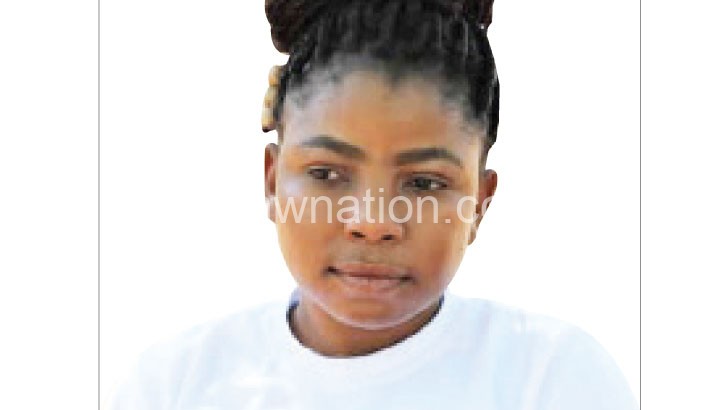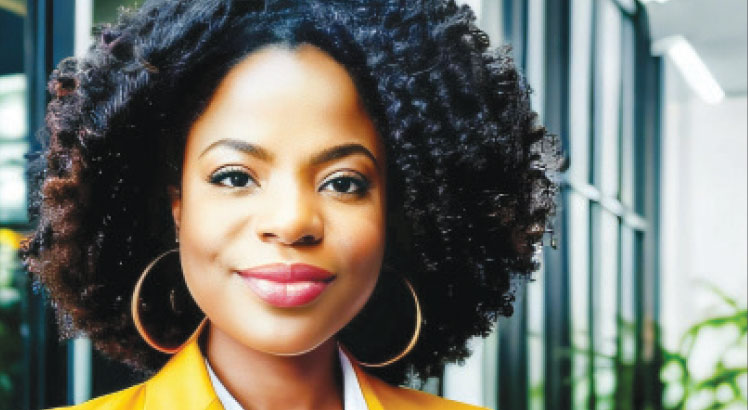Christie banda: focese executive director
At just 28, Christie Banda is a cut above the rest in that it has always been her ambition to fight for the underprivileged.
Making it to the helm of the Foundation for Civic Education and Social Empowerment (Focese) as executive director made her even more passionate about the fight for women and girls’ rights.
“Since I joined Focese, I have worked hard to ensure that girl’s rights are realised and respected apart from ensuring that a girl’s security is paramount,” she says.
It is her observation that there is need to safeguard basic needs of a girl, including sexual reproductive health services (SRHS) and prioritise their education.

From this belief, Christie managed to source support from Global Fund for Women, African`s Women Development Fund (AWDF), Frida-Young Feminist Fund, Amplify-Change and Spotlight Initiative under UN Women to ensure that her organisation fast-tracks efforts towards child protection with focus on girls.
“We have strengthened youth structures in Nsanje with financial support from DanChurchAid where youth groups have been oriented on child protection issues. As a matter of fact, what is more important for me as a leader of Focese is that we create a society free from sexual violence against girls; a society that regards girls as human beings and not toys,” adds Christie.
From the same passion, under her leadership, Focese has prevented and eliminated more than 50 child marriages in Traditional Authority (T/A) Kalembo, in Balaka.
She also mobilised community leaders to formulate child protection/anti-child marriage by-laws.
The list of her achievements include facilitating the formation of Alliance Youth Organisation (AYSO) where Focese leads a consortium of 40 youth organisations in Malawi that are doing advocacy around sexual reproductive health for young women and girls.
“Above all, I am working hard to influence changes in dominant thinking in regards to social and cultural norms that cause, drive and perpetuate the practice of child marriage and teenage pregnancies in society,” says Christie.
Focese is an all young women-led youth organisation which Christie joined in 2017 as programme manager before she was promoted to her current position.
She comes from Nkhata Bay, Matete Village, T/A Fukamapiri.
The executive director grew up in an extended family and was raised by her maternal aunt alongside three cousins.
Otherwise, she has four siblings and is single.
Christie attended a few primary schools, but wrote her Primary School Leaving Certificate of Education (PSLCE) at South Lunzu.
She then went to Malosa Secondary School from where she was selected to Chancellor College (Chanco).
She graduated in 2015) with a Bachelor of Social Sciences degree (majoring in Sociology and Economics as a minor).
Currently, Christie is doing a Master’s of Science in Management Studies with the Malawi Institute of Management.
“I set off on my career path with a number of internships. Almost immediately after graduating, I volunteered for the International Citizen Service programme for three months in 2015, focusing on quality education and health for adolescent youth women and men.
“Then I did residency with the Office of the Ombudsman in the investigations department for a year before joining Baso Malawi where I worked as a programme manager for a Tilitonse-funded good governance project (an advocacy project promoting people to claim their rights from their duty-bearers).
Commenting on the situation women and children rights, Christie observed that these were on fire.
Says she: “Our rights are being violated many times and it is getting worse by the day. There are increased cases of rape and defilement as well as increased incidents of violence against women and girls. Even the systems set to protect our women and children are not working, we have seen many perpetrators walking freely.
“Unfortunately, most of the sexual abuses are perpetrated by people closest to the victims. And as such, many girls face challenges with their families when they want to leave or resist marriages or report the sexual incidents due to a culture that looks down upon divorce and separation. Quite often, victims are threatened with homelessness and other socio- economic problems”.
But why are cases of GBV so rampant? Chrisitie says while many women and girls join together to fight violence against them; and some men coming out to condemn acts of sexual violence—there was little being done to hold perpetrators accountable.
“We have seen most of them moving freely in our towns as if they didn’t do anything. We need justice for our women and girls. We want condemnation of violent acts to go with action, stiff sentences for all rapists, violators, she observes.
She is of the view that implementation, monitoring, and enforcement of the laws remain limited, causing slow progress and continued challenges for women and girls that relate to discrimination and exclusion.
She says this limitation reflects the general weakness and capacity gaps that exist in institutions in Malawi responsible for gender equality, empowerment of women and girls and prevention of harmful practices.
Christie notes that challenges are manifested in the weak oversight and accountability on gender-related issues and are aggravated by inadequate human, financial, and organisational resources, which lead to weak, underfunded delivery systems and inadequate information at household and community levels.
“Furthermore the CSO space is being pre-occupied by international organisations leaving local behind. Most of the interventions on eliminating GBV stop after donor funds as there seem to be little sustainability plans. There is also culture of silence among many women and girls eventually leading to increased cases of SGBV,” she says.
Christie says we need serious commitment by our political leaders to lead a way in formulating policies that could curb this and ensure that our institutions such as police, court take active role in stopping violence against women.
Furthermore, she adds that we need to engage and empower community and religious leaders to oversee, implement and monitor implementation of laws on protection of women and girls.
Gender advocacy is not a mean achievement. But Christies starts her day with a little bit of exercise to help her through the day.
Thereafter, she goes her morning meditation to reflect.
“Then I dive into my formal work which usually starts with checking emails and giving strategic direction on different issues at the office. From there, the rest of the day is just work and it all works for me because I love my job,” she beams.



